Description of this episode
Join hosts Don and Sharon as they speak with Ted Bloomberg, bswift’s CEO, about bswift’s bright future as we emerge as a standalone organization. In this episode, you’ll learn more about bswift’s leadership, what fuels our passion for our clients and partners, and our commitment to deliver excellent technology and service to all those we serve. Don and Sharon will discuss how the fundamentals of transparency, communication, and accountability are the foundational elements bswift roots itself in to drive the business. Settle in for fun and fast-paced dialogue that even includes a baseball story or two!
LISTEN ON SPOTIFY LISTEN ON APPLE PODCASTS LISTEN ON IHEARTRADIO
Well, Sharon, we have a wonderful guest with us today, our CEO at bswift, Ted Bloomberg. Um, Ted, we’re delighted to have you on our show today and, uh, want to just, uh, start out, uh, giving our audience a little introduction to Ted Bloomberg. So tell us a little bit about where you’re from, Ted.
Thanks, Don. Thanks Sharon, for having me. It’s awesome to be with you. That’s a loaded question, Don. I could take that one, uh, in a lot of different directions. Um, so I’m gonna, first of all, I’m from Buffalo, New York. Um, and the way that, that I think, uh, impacts the person I am today is because, um, my formative years, uh, I, I endured four consecutive Super Bowl losses, , um, by, by the Buffalo Bills. And, and, uh, so I know, uh, maybe if you ever detect some natural pessimism, um, that’s probably where that comes from. Um, but in Buffalo, I was raised predominantly by a single mom. And I think that that’s impacted my life in a couple of different ways that are sort of relevant to, um, to what we do at bswift. First of all, um, watching someone who’s alone and trying to navigate be being a parent and working and taking care of all of her responsibilities makes you realize, um, how tricky the world can be for non-experts.
And, um, so my career, you know, I started in financial services where, um, you know, trying to make sense of how to invest your money and how not to fall victim to various, you know, product predators and people trying to sell you stuff was really important to me. Cause I watched my mom sort of fight, fight those battles. And I think the same thing is true, uh, from a benefits perspective. I mean, no one was around when I was 12 years old, you know, asthmatic and not healthy, and my mom’s trying to pick the right benefit plan for her. Um, and I just, it just felt like she was kind of alone. Um, and, uh, and so, you know, one of the things that really sort of drew me to this opportunity was the, you know, was the ability to kind of be there for people, give them education, help them make the right decisions for their family, especially, you know, maybe if they’re alone or don’t have experts around them, uh, to help ’em pick the right, make the right choices.
Yeah. And Ted, I think, I mean, that’s what bswift’s bread and butter is, right? Is taking a very complicated ecosystem and breaking it down for our employers and our, and most importantly the employees. And, you know, I’d love to kind of unpack that. So you’ve come to bswift, what really attracted you to bswift as one of those companies that accomplishes that? Sure.
So I think the, the biggest one, think you’re a hundred percent right, was the mission, right? And the, and the reach, um, you know, bswift touches, um, you know, over 18 million people. Um, and we help inform benefits, decisions and healthcare decisions for a huge portion of the American population. And it’s a complex, uh, difficult series of decisions. I mean, I’ve been here for a while and I still get tripped up by the, the TLAs, the three letter acronyms, right? It’s complicated. It’s plenty of those.
Is it an HMO? Is it an HSA? Is it an FSA? Right? And, um, and so the mission to kind of demystify, uh, benefits and help people take better advantage of the benefits, they get informed, um, not only this career, uh, stop, but also my last one, which was at Health Equity, which is a, um, an HSA provider. Um, and, uh, you know, and I was just really attracted to the mission of helping people make better and more informed, uh, benefits decisions. Um, in addition, that wasn’t the only thing though that attracted me, um, to, to the B Swift opportunity. Um, second one was, um, the, the team that I met both in the organization, but also um, at Francisco Partners who, um, who owns bswift, um, I really felt a great alignment to what mattered most to me. Um, the culture here is unbelievable. People care about their clients, they care about the employees of those clients.
They care about our partners. Um, they’re incredibly knowledgeable in the industry. It cracks me up how many, you know, benefits is a little tricky and to crack. You know, I’ll talk to somebody who looks like they’re 25 years old when I meet them, and I say, how long have you been in the industry? And they’re like, oh, 25 years, . You know? And, uh, so I think first of all, I’m not that good at judging how old people are, but secondly, um, it really does amaze me the depth of the expertise, uh, that I found at bswift and the cultural commitment to, um, you know, to to, to the mission. Um, and then, you know, the, the, the sort of story of this great company with its entrepreneurial roots that was a real innovator and leader in the benefits administration space, getting bought by this, you know, awesome company, you know, uh, Aetna and then CVS.
Um, but maybe, um, struggling a little bit to, you know, to free up investment dollars when, you know, a company is massive and, uh, uh, a CVS has so many different, um, you know, kind of investment mouths to feed. Um, and so Francisco Partners really excited me when they sort of said, Hey, listen, we think we can invest in this business. We think we can unlock value, we can re um, you know, reenergize the, you know, those innovative roots and that service orientation and being part of that was really exciting too. So I think those were kind of the three things that, that, uh, that attracted me to bswift. Maybe also the opportunity to wear orange , you dunno, or orange is our color. And, uh, which I wish
The audience could see today. Yeah. You know, the, the orange you’ve got on, it’s, uh, quite a bright one and it’s, it’s looking good.
I thought this was video. I didn’t realize it was just audio. I wore my orange sweater.
. So, so Ted, you know, you saw Bswift in a company with good bones, you know, people, product, et cetera. Um, so what’s your vision for our path to success in the future?
Sure. Um, I think bswift is primed to, to be successful, but it all starts with service. It starts with service to our partners, service to our clients, service to their, uh, employees, service to our entire ecosystem. And, um, you know, benefits administration is a little bit, bit of a tricky business where, um, you know, it’s a little bit like plumbing, right? You don’t exactly notice it if it works, but you notice it real fast if it doesn’t work. Um, and, and I think that the implication there is we just have to commit like crazy to service. We have to invest in, in, it’s not just, you know, there’s a, there’s a people component, there’s a staffing component, there’s a talent component, there’s a, you know, a process automation component. But, you know, we can never forget that we earn the right to grow to innovate, to be successful by providing, you know, that kind of that great service at our core.
And, um, you know, that’s what has to be in our hearts. Um, and, and then it has to go from our hearts into our processes and into our training and into our capabilities. Um, so to me that’s, you know, that’s the path to success is, is, you know, building on that foundation of service. And then that earns us the right to be, um, you know, to to be innovative and to continue to develop and leverage, you know, sort of user experience best practices from both inside and outside of our industry to, um, make us easier to do business with, right? If we provide great service and we’re easy to do business with, we’re gonna win.
Uh, totally agree. And I would say Ted, you know, like just, um, at the heart of it, that that vision of service resonates with people. It’s what people care about, and it, and it drives people to, um, you know, really want to come to work every day and deliver, because that’s what they wanna do. They most people, and I think all, pretty much all beers really want to help, uh, people. And that’s, that’s great for, for our future. So, um, as you’ve come in, Ted, I, I can tell you, you’re a guy that gets stuff done , and you’re driving to get stuff done every day, one way or another, one way or the other. And so, so tell us a little bit about some of the changes you’ve already brought to bswift and how you think those changes are tied to, to your vision of service.
Sure, thanks. I mean, I think that first of all, you know, you mentioned it a minute ago, Don B Swift has great bones, right? It wasn’t like bswift needed a, you know, extreme makeover or anything like that. Certainly not by the likes of me. Um, but I think what, what I generally tend to, to bring for, for better or worse of the companies where I go to work is, um, is transparency and communication and accountability. Um, and you know, I think that in a 300,000 person organization, you know, maybe there’s a little bit of like, I’m just gonna keep my head down. I’m going to avoid conflict, you know, know, um, vibe. And I think, you know, so one of the ways that I’ve, that I’ve tried to change that aspect of the culture a little bit is just to promote, um, people raising their hand, right?
To preach the value of communication. You know, we talk for example about, um, you know, one example is no, uh, no watermelons, right? So there can’t be a project or a client or a sales process that’s green on the outside and red on the inside. That’s a watermelon, right? That’s an example of lack of transparency. It’s an example of poor communication. And, you know, I just want people to be, to be honest, right? One of the things I say is, you know, if you tell me it’s a problem soon enough, it’s our problem. If you tell me a problem too late, it’s your problem, right? So I want everything to be our problem. I want, you know, I want us to be candid about, uh, you know, about, about where we stand and, and work together to, to fix it. So I think the biggest thing is kind of transparency and communication, but, um, you know, but I also am very conscious of the fact that, you know, the new guy riding in, trying to change a bunch of stuff is not a recipe for success. So I’m trying to be thoughtful.
You bring up a good point, Ted. I mean, we’re, we’re a mighty powerful 1200 employees, right? So we were buried under, uh, not buried. We were included in a much larger enterprise that was, you know, 300,000 employees. When you think about everything that we deliver to our partners, to our clients, to their employees, every single person that sits in the bswift building or remote or wherever they’re working on, bswift is such a critical player to delivering to our clients. So I, I love, I love the direction that you’re providing there. Um, taking a little bit of a turn off of the business aspect, you know, and many of our listeners may not know this, but internally at bswift, Ted does what we call talks with Ted, not TED Talks, to be clear, , . Um, and we routinely do those with key players and, and organizations so that people can kind of get to know those folks a little bit better. And one of the questions you often ask those folks that you have on that talk with Ted, is what might be something that someone doesn’t know about you? So, personal professional, what is something that might surprise our audience about you, Ted?
Sure. Um, I, uh, I could take this one in a lot of different directions. Also, I’m a little bit nervous about where my brain might lead my mouth, um, in the next 30 seconds. Um, well, so lemme tell you one interesting fact that is just sort of a, a, an interesting mathematical fact. And then I’ll tell you a couple of other maybe more personal ones. So, I don’t know if you’re a baseball fan. I’m actually not a baseball fan. I’m not a huge baseball fan, but I periodically attend baseball games and there’ve been somewhere on the order of 20 perfect games in baseball history. Um, so really not that many, right? You know, there’s thousands of games a year, 20 perfect games in baseball history, roughly. Um, I have been to one and my dad was that one. So that’s pretty rare. Rare. I can’t, there’s too many father-son duos that have been to two different perfect games, especially if they’re not huge baseball fans. Yeah. Um, that might be unique in all the world.
, I think we should submit that to Guinness Book of World Record. Is that a thing still? I think that might be.
So, so, so for those of you who are baseball fans, um, I went to David Wells’s Perfect game in 1998. Um, and I remember showing up and I thought it was Roger Clemens pitching, and I was really bummed that it was David Wells, cause I didn’t think he was as good as Roger Clemens. And, you know, by the end of the nine innings, I was a huge David Wells fan, . Um, and then my dad went to Jim Bunnings Mets perf, uh, perfect game in like 1962. Wow. Or 63 or something like that. He’s a congressman or was for a while a congressman. So that’s a fact. Not a lot of people know about me. That is pretty rare. Um, another thing that people, um, may, I don’t know if they should know this about me . Um, but we all seek, you know, ways to unplug and disconnect, um, or at least to zone out, I guess I can’t call this unplugging.
Um, but, uh, there is a game on one’s, um, uh, device called, uh, tune Blast, um, which is sort of like Candy Crush, same concept. And it is my go-to vice. If I need to turn off my brain for 10 minutes, I’ll play tune blast. You just break lots of red and yellow bricks. . I think it’s possible. I’m like the top 1% of players in the world, okay? Like, I, I am, um, I’m embarrassed to tell you how much, uh, tune blast I have played. Um, and I am, um, I think I’m better at Tune blast than I am at almost anything else, which is not complimentary in anyway.
That’s amazing. So those are two facts about me that you may not know. One, one of which is interesting, and the other of which is totally embarrassing. We’ll have to hashtag tune blasts when we promote this so that we can get all of your other, your raging tune blasts fans. So listen to the pod . I like it. Um, well, Ted, you know, kind of on that same vein, I’d love to know, like what keeps you up at night and then on the, on the other end of the spectrum, like what gets you up and motivates you in the morning?
Sure. So I think what keeps me up night is the point I alluded to earlier, which is this is just a tough business to serve, right? And, um, you know, things can go bump in the night, and I wanna make sure that we are, uh, having as few things go bump in the night as possible, and that we are as aggressively reactive as we possibly can be when things do go bump in the night. And I think that, um, relatedly something that keeps me up at night culturally is kind of the curse of good enough, right? And, um, you know, on the one hand I say a lot, Hey, don’t let perfect be the enemy of the good, right? Because you wanna make progress. You don’t have to wait for perfection. But what I mean by that is cu culturally, and not really just at B Swift, but kind of, you know, for people I talk to, companies I, um, engage with, um, it it, I worry that in a remote environment or a hybrid environment, or even in, in, in a, in an in office environment, um, there’s a tendency or a, a temptation to kind of settle for good enough.
And I wanna make sure that bswift culture does not fall victim to that sort of broader kind of, you know, corporate, um, boogeyman mm-hmm. a little bit. And so, you know, what we’re, you know, we’re always to, the way we combat that is we’re always trying to celebrate successes and celebrate people who go above and beyond and, and, you know, and, and make sure that we’re, you know, in the, in the talks with Ted that you mentioned, you know, I start every one of those with, um, you know, I, I solicit from the whole company, like, who, who needs to hear their name in lights, right? Who’s doing a great job? Who’s, who deserves their flowers? You know, who can I, who can I talk about? Because I want us to make sure that we’re not providing common service, we’re providing uncommon service, but it’s easy to provide common service, you know what I mean?
And not just in your work life, but I mean, you know, sometimes you, you know, there’s a, sometimes you walk over a piece of trash, even though you can see a garbage can 10 feet away mm-hmm. . Like, we all do it, right? And so, so what I want to try to do is make sure that at our culture in bswift, we do that as infrequently as possible, and that we strive for, you know, we strive for a just a super high quality lever level of delivery, um, all the time. And, you know, falling victim to that kinda keeps me, would be one of the things that keeps me up nights on, on the motivational side. It’s easy. Um, I want to you know, I, this sounds cliche and people are gonna roll their eyes or whatever, but I really do like, kind of explode out of bed in the morning.
, um, you know, as much as my old man frame will actually allow me to explode, uh, out of bed because, um, because I believe in our mission, like at, you know, and, and I, I believe in our mission, and I believe in our people at a really sort of deep level in my bones, right? So, so, um, you know, one of the things that motivates me is I don’t wanna let people down, right? You know, I don’t wanna let you know, people out on our own team are working so hard. People at our clients, people at our channel, partners, people, you know, people in our in our business are working so hard, and I want to be there working hard for them so that they, um, you know, and, and so motivating, uh, that motivates me, right? Is to help motivate other people by showing up and working as hard as they do, and, and, and being, making as big contribution as they do all in, in service of this really important mission that can help bend the cost curve in America and help us kind of deliver better outcomes for the millions people we serve.
You know, Ted, I’m in a fair amount of meetings with you, and I can tell you that that passion comes through. So that’s definitely there, ,
That’s Don’s way of saying maybe you could tone it down.
No, no, not, don’t tone it down. I mean, it’s perfect. It’s perfect. In fact, I’ll comment on it later, but I think, but, um, so I wanna shift gears for just a quick second Yeah. To Francisco Partners as our new owner Sure. And, uh, and partner in our growth. Um, what excites you about being part of the Francisco Partners family and companies? Sure.
So, so, um, for those of you who don’t know, Francisco Partners is one of America’s, uh, biggest and most highly regarded and most successful private equity firms. Um, they bring a tremendous amount of expertise to bear for us. They, uh, have, uh, somewhere between 50 and 60, uh, companies that they own, all of which are in technology, many of which are in healthcare technology. So the amount, they know, the amount of, like, they have seen this before, whatever this is, uh, is unbelievably high. Um, and so the competence, the people that they’re able to, to bring to bear and the help they’re able to provide, uh, is one thing that’s, that’s really exciting. The second thing is their, you know, is their vision. I wouldn’t, I would not have taken this job if they were kind of like, Hey, the way we’re gonna make money is we’re gonna slash costs and, you know, move the jobs, you know, uh, move all the jobs somewhere else and, and, you know, provide, you know, bad service and try to expand margins that at the stage in my career that I was in, that would not have appealed to me.
Um, they want to build the, the preeminent benefits administrator and the industry, and that’s why I’m here. Um, and, and so the alignment of mission would be the second one. Um, and, uh, you know, and thus far six months in, you know, they’ve, they’ve delivered on every promise they’ve made. Um, they have written big seven figure checks for investments in technology, investments in security, investments in people, investments in automation. Um, and every time I’ve asked them for something, you know, as, I mean, listen, I’m not asking them for stupid stuff we don’t need, right? Like, we’re not gonna have the Rolling Stones play our summer party . But, but cool though, that would be. Um, but every time I, you know, I’ve asked them for something they’ve delivered, and so the, you know, I think, I think that their competence is excellent. I think their vision is exactly where I want ’em to be, and I think they’re a great partner.
Awesome. So, you spoke a few minutes ago about your commitment to transparency, communication and accountability. And you know, I know internally right now, you’re kind of on a campaign to listen and learn from, uh, sifters and from clients and, and channel partners. Tell us, um, what you’re doing to, to, to open that channel of communication and, and what you’re doing to make us accountable for the things we’re learning in that process.
Sure. This one is really important to me, and I think it’s a place I spend a, a, you know, disproportionately high amount of my time is breaking down any sort of barriers to communication that there can possibly be. So you heard me mention it, uh, earlier, but it’s worth mentioning again, you know, no, no watermelons, right? There’s some companies, some cultures that shoot the messenger, right? You, you know, you got some bad news to share, you share it, and you’re the one who gets, takes the blame for it. I’m trying to build an opposite culture where we celebrate the people that bring us the news, whether it’s good news or bad news. You know, I I say all the time, I don’t like surprises, even if they’re good surprises, right? I want, I want to know what’s going on. I want people to feel incredibly comfortable.
I want communication to feel frictionless. Um, and, you know, that means asking questions if they don’t know the answer, you know? Cause sometimes that’s also part of the culture is you need to seem like you know everything, so you’re unwilling to ask a question. Mm-hmm. , um, you know, I’ve asked a hundred dumb questions in the, you know, last, you know, three days. So, you know, I, I’m certainly leading by example on that one. But, you know, trying to be, be willing to ask whatever questions gonna help you do your job. And if you see something, if you have an observation, if you wanna make a point, make it. And then on the accountability side, you know, it’s, it’s kind of the flip side of that same coin. It’s like, okay, we’ve talked about the problem. We’ve established the problem. We have a plan to, or the opportunity, it doesn’t always have to be a problem.
Um, we’re gonna address it. You’re gonna be responsible. Do you have enough resources, um, to, to get what you need? Do you have the right resources? If so, yes. Then you’re gonna go get it and it’s on you, and we’re gonna hold you accountable to how well you do. Um, and so I think that that kind of same, you know, two sides of the same coin, the communication, the openness, the transparency, and then the ac the accountability just goes together. And, you know, interestingly, one of the things that people may not know about bswift, um, is that, you know, one of our three values as accountability, right? And, um, uh, you know, the other two are higher standards and have fun, which I like as well. But the, but you know, it’s, it’s kind of right there in the bedrock of this organization is we hold ourselves accountable for our performance, which is, you know, really appealing to me and should be appealing to high potential people that wanna work here. And, um, and, and so that’s, you know, that’s kind of how I think about that one.
I think, Ted, that this is all great advice in terms of how we’re looking at the business. And I would be, I would love if you could also give advice to our listeners on how to be a good business person and maybe someti tried and true, you know, rituals or, um, adages that you’ve lived by throughout your career that you feel like has contributed to your success.
Sure. Um, first of all, make lots of mistakes. I think that’s probably one of the ways that I got here is, uh, is, you know, made a lot of mistakes and learned from them. But, but I, I would give, I would give three, um, three things about sort of my daily existence that I think help inform who I am and how I sort of, um, the, you know, how I experience the world and how the world experiences me. Um, the first one is we’re, um, there are so many demands on our attention right now. Um, you know, whether it’s your phone or whether it’s tune blast, or whether it’s, uh, your kids or whether it’s, you know, uh, a client. Um, so, so I try to balance it, you know, an obsessive relationship with getting stuff done, um, with ensuring that I have time for the deep thinking stuff that is a little bit harder to time.
It’s a little bit harder to get done fast. So the way that I do that, there’s, you know, kinda getting stuff done. I sort of have this rule where if I can get something done in five minutes, I’ll do it right now. Right? And the reason why is because then it doesn’t tax your brain thinking about the fact that you have to get it done later. Um, so I’m, you know, one of the things that people will remark about me, not always positively, is that I’m hyper responsive to email, right? If you’re waiting for a decision or you’re waiting for a response, and I can get you that fast, I want to get it fast to you fast, right? But the problem is, if you over rotate that way, you never give yourself any time for deep thinking, for, you know, for working on projects that take longer than five minutes, of which there are many.
So one of the tricks I’ve, you know, used over the last year or so is I’ll set a timer. Um, so I don’t think you can really work on something for longer than 30 minutes without taking a break. So if I’m writing a board document, or I’m thinking about a strategic problem, or I’m, you know, there’s something I have to do deep work, I’ll set a timer, I’ll turn off my email, and I’ll do it for, you know, for 30 minutes. And then when the 30 minutes goes off, um, you know, I’ll turn my email back on and I’ll, you know, if I, if I’m not finished, then I’ll pick another time to set another ti, you know, to set another timer and do it again. But if I try to do the deep thinking stuff while I’m doing the triage, go fast, get stuff done, stuff, I’m bad at both.
Um, so I try to take separate time to do that. And then, and then the last one, which I would highly, highly encourage, oh, sorry, that was the first one. Second, second one is, um, uh, is, is there, you know, there’s this Navy seal, I can’t remember the guy’s name, but he’s like, every day, you gotta start with making your bed. And, and, and the punchline is that, you know, in order to start, in order to be productive, just start being productive, right? My wife will tell you that I don’t always do a great job making the bed . Um, so that specific example is, uh, is, does not, uh, apply to me, but it could be, you know, just, you know, get out of bed and start being productive. Just do something that you’ll be proud of, right? Whether it’s making the bed, whether it’s taking your kid to school, whether it’s making breakfast for your family, what, you know, what, whatever, you know, whether it’s banging out a hundred pushups, whatever it is.
Um, and that accomplishment will set the tone for the rest of the day. So that’s the second one. And then the third one, um, is we are all so sedentary and it is bad for us. Um, there are some days where, you know, I have a, my phone’s in my pocket a lot, so I know how many steps I’ve, I’ve walked, and it’ll be some like offensively low number at five o’clock. So try to move. Um, it doesn’t have to be a big workout. It doesn’t have to be, you know, a marathon. It doesn’t, you know. But I mean, I, um, you know, four or five times a day, I will go for like a, for a walk that’s somewhere between five minutes. And if I don’t have any time, or 20 or 30 minutes, if I have time, or I can do, do a phone call, and moving my body helps my brain. So I think that, you know, separate deep work and kind of reactive, fast work, make your bed or do something productive and then move. Those would be the three things.
So Ted, this discussion has been super insightful, and you know, my observation is you’re a man with heart. Um, you’ve got focus, you’ve got energy, you’ve got commitment. And at bswift, we’re in very good hands, Sharon.
Yeah, I would just echo that. And I think if, if anything, folks should be very excited for what’s to come from bswift with, with Ted at the helm.
Well, I, I appreciate the kind words. If you’d like the corresponding list of my weaknesses and failures, my wife would be happy to provide that list to you. But I, but I, I gotta say just, you know, um, I’ve been here six months. I remain o overwhelmed by the positive energy, the capability, the intelligence, the work ethic, the capacity, the deep knowledge of our space that I encounter among our, uh, you know, among our 1200 bswifters every day. And I think I, you know, um, I think I chose pretty wisely, uh, with this, um, you know, pursuing this opportunity. And I think you two, um, are, you know, continue to, to, to, uh, to be great examples of what a b swifter can be, high energy, uh, great partnership. Our channel partners that you support, are lucky to have you in their corner. Um, and I really appreciate you. So thanks for the opportunity to chat with you today.
Alright. Thanks Ted. Well, thanks for joining us, Ted.
About Ted Bloomberg
Ted Bloomberg is a health care delivery executive with 25 years of leadership experience and serves as Chief Executive Officer of bswift. Ted is responsible for bswift’s strategic vision, growth and culture.
The views expressed by guests of the bWise podcast series are theirs alone and not endorsed by nor necessarily reflect the views of bswift, its affiliates or their employees. The podcast recordings and all rights are owned and retained by bswift. Reproduction, duplication or reposting of podcasts or any portion thereof without the express written consent of bswift is prohibited.
Related Insights
bswift Beacon Episode 01: Cracking the Code on Employee Engagement with Alyssa Zeff
Join hosts Joel and Denise for the debut episode of bswift Beacon. Get insights from internal communications expert Alyssa Zeff.
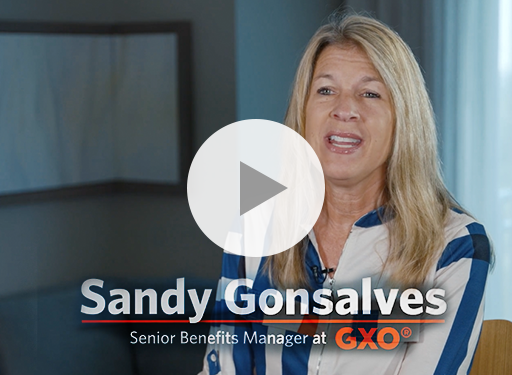
Flexible, Powerful, Trusted: bswift Redefines Benefits Admin
Hear why HR pros choose bswift for benefits administration. See why organizations of all sizes trust bswift to deliver efficiency, flexibility, and advanced functionality in benefits tech.

Harnessing the Power of AI for HR
Unlock AI’s potential in HR with bswift: Automate tasks, enhance decision-making, and focus on strategic goals. Discover AI’s role in recruitment, onboarding, and more
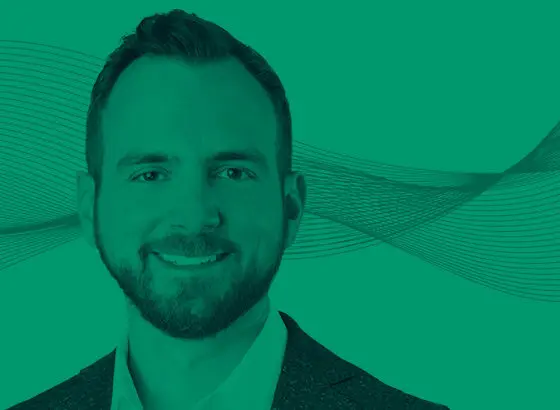
bWise – Ep 29: Building the Future of HR with AI: A Chat with Jeff Kirk
Get practical insights for driving successful digital transformations across industries. Listen in as Jeff Kirk shares his 20+ years of experience and wisdom, with real-world examples of digitizing businesses
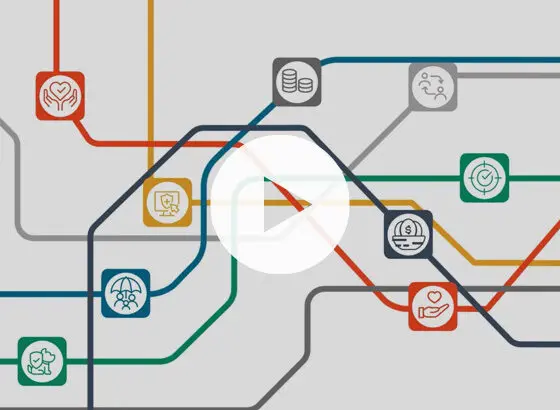
Simplify Benefits, Unlock HR’s Potential: bswift Has You Covered
Simplify benefits administration and empower HR with tools to streamline enrollment, optimize benefits use, and free HR for strategic work.
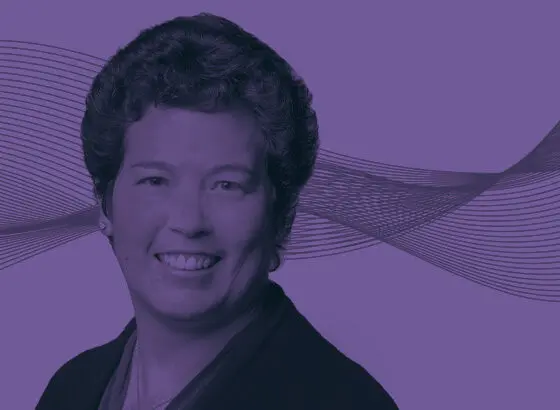
bWise – Ep 27: Streamlining Benefits Admin: Real-World Wisdom from Industry Vet Maria Yao
The latest episode of the bwise Podcast is a masterclass in optimizing operations. Tune in for Maria’s straight-shooting advice and elevate your operational capabilities.
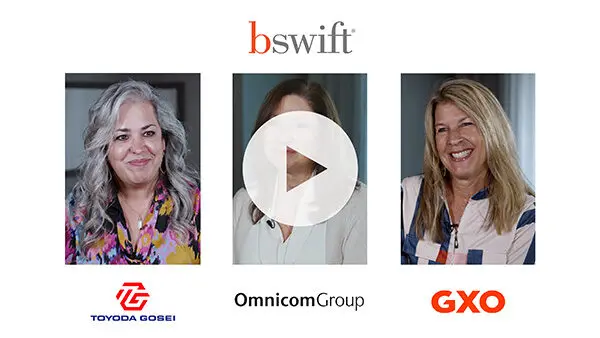
Flexible and User-Friendly: bswift Benefits Enrollment Solutions
Learn how bswift’s benefits administration platform streamlines HR’s work with flexible technology, seamless customization, and user-friendly tools to deliver benefits the way they’re meant to be.
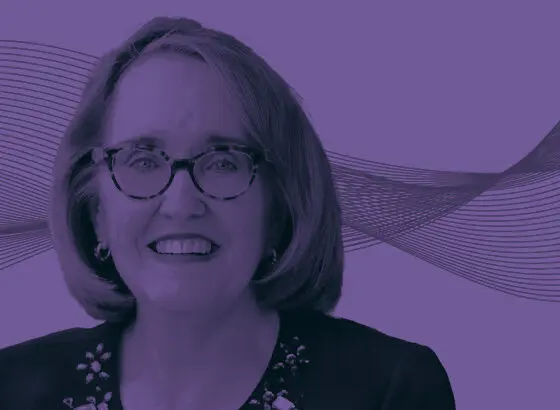
bWise – Ep 26: Achieving Liftoff: Lana Hillebrand’s Journey From Astronaut Aspirations to HR Industry Leader
In this episode, hosts Don and Sharon sit down with HR and benefits administration leader Lana Hillebrand, who recently joined bswift’s advisory council.
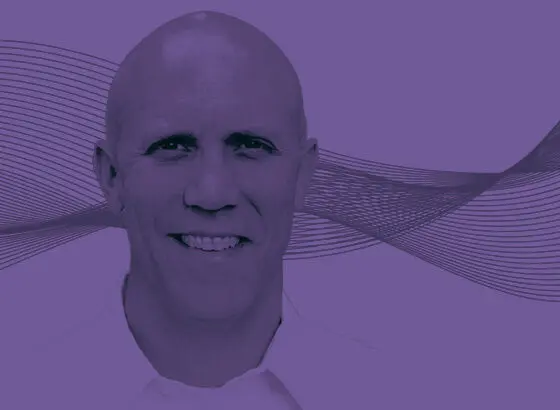
bWise – Ep 25: Navigating the Future of Ben Admin: A Conversation With Scott Millson
On this episode, benefit administration insider Scott Millson shares his unique perspective on his over three decades in the employee benefits field.
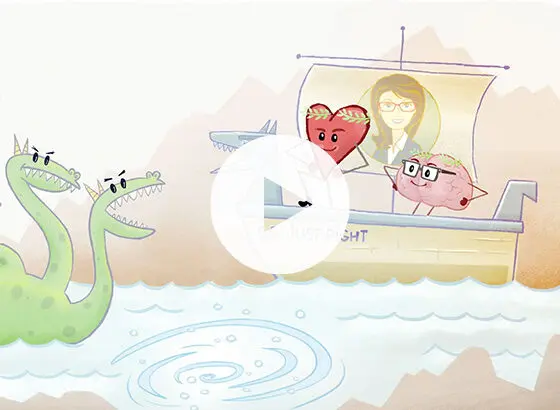
Choosing Your Benefits with Ask Emma
Choosing Your Benefits with Ask Emma Video Transcript
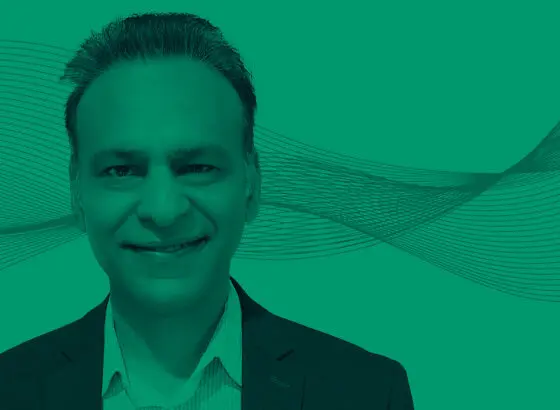
bWise – Ep 24: Ice Baths to Client Service Excellence: A Conversation With bswift COO Amit Jain
Listen in as bswift Chief Operating Officer Amit Jain talks about his passion for client service, his unique approach to leadership, and his vision for the future of benefits administration technology.
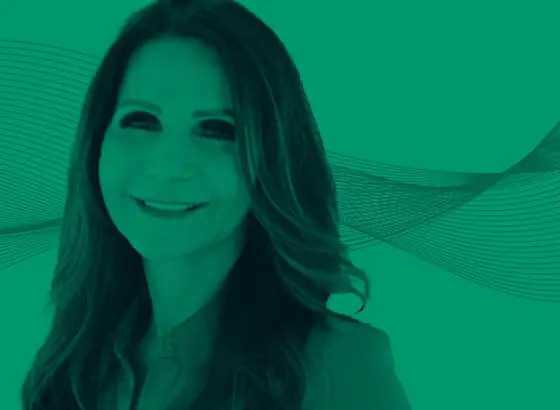
bWise – Ep 23: Shaping Culture and Service: A People-First Approach to HR with bswift’s Natalie Atwood
bswift’s Chief People Officer Natalie Atwood talks with bWise hosts Don and Sharon about her passion for putting people first.
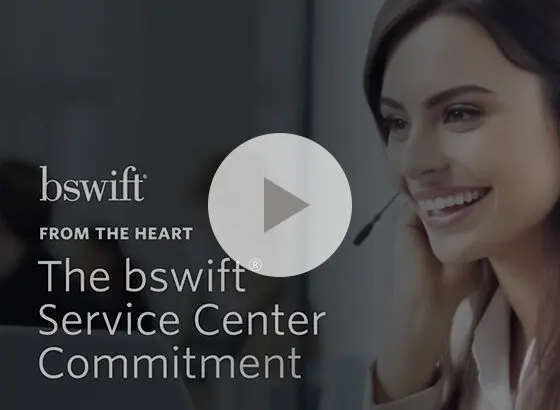
The bswift Service Center Commitment Video
Benefits can be difficult to understand. Watch this video to see how bswift's Service Center makes it simpler for employees.
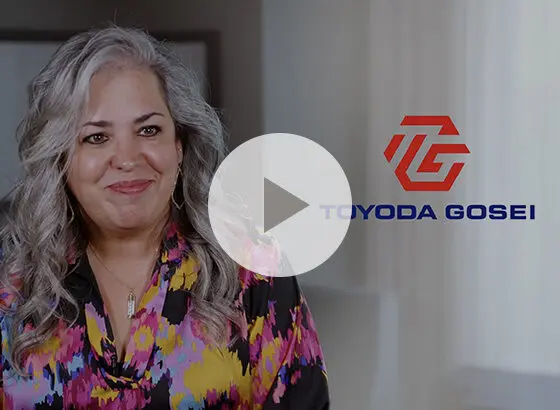
Toyoda Gosei Customer Story
Hear how bswift’s benefits tech stands out for its robust functionality, flexibility and dependability in managing complex benefits for a diverse workforce.
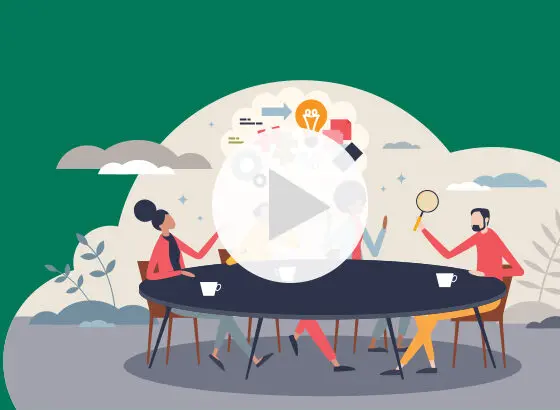
Unlocking the Power of Employee Benefits
Discover the hidden keys unlocking the full value of your benefits program for your employees and your organization. Watch it now!
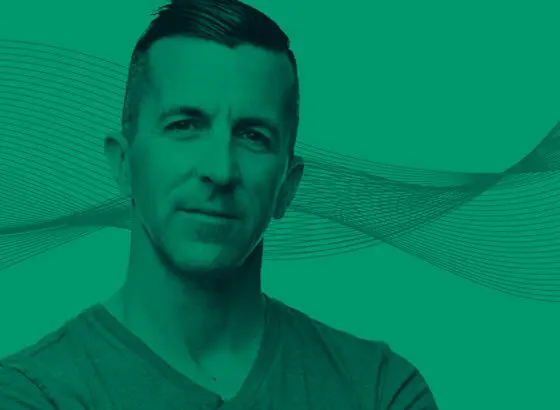
bWise – Ep 20: Digital Transformation: HR and Employee Engagement, With NFP’s Mark Rieder
In this episode, we’ll explore how digital transformation can improve the employee experience, boost customer satisfaction, increase productivity, and drive greater profitability for the company.
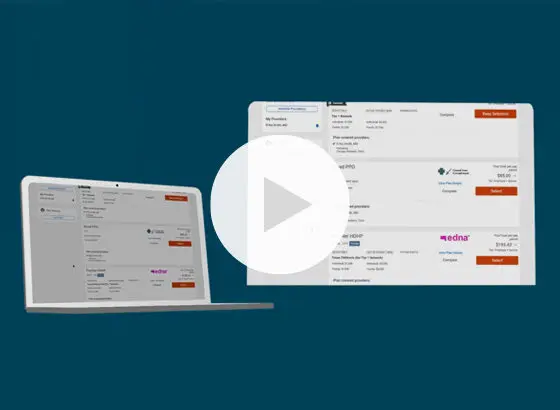
Fueling Outcomes: bswift’s Innovation Strategy and Latest Enhancements
Watch bswift's latest video to get up to date on bswift's latest innovation strategy and enhancements. Watch video now.
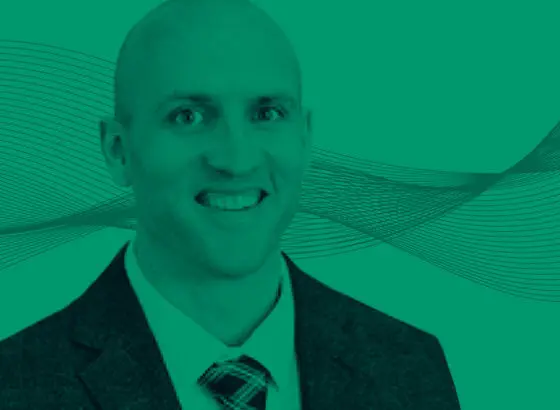
bWise – Ep 22: Driving Operational Excellence at bswift With Adam Hostetter
Get an insider’s look at how bswift’s Head of Operational Excellence, Adam Hostetter, is driving major improvements. Learn how his team is enhancing service delivery, upgrading technology, and aligning workstreams to accelerate growth.
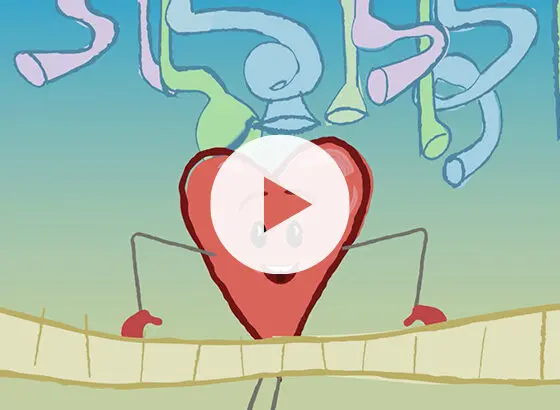
ACA Management Suite
Introducing ACA Management Suite, offering a suite of management solutions to help employers navigate the new world of healthcare and benefits
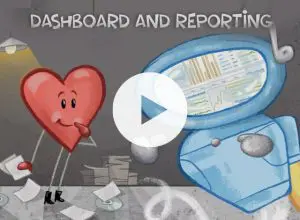
bswift Dashboard and Reporting
The bswift Dashboard and Reporting tool provides easy access to the robust data you need in customizable reports, all in one location.
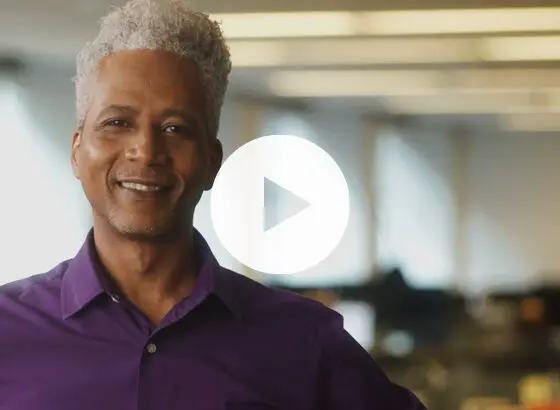
We are bswift
From innovation and data security to compassion and care, hear from our people about what makes us bswift.
